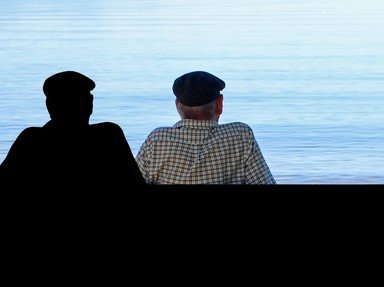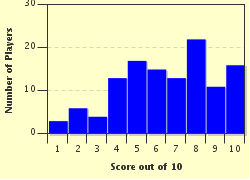Quiz Answer Key and Fun Facts
1. Louis Braille was known for introducing the braille system of reading and writing for the blind and visually impaired. What caused Braille to go blind when he was a child?
2. Opera and crossover classical singer Andrea Bocelli (b. 1958) became blind when he was a child following a sporting accident. Where was he born?
3. Blind American singer, Stevie Wonder, has been entertaining people with his soul and jazz music since 1962. What was his birth name?
4. Which blind English poet wrote the poem, "On His Blindness", which featured the following lines?
"When I consider how my light is spent
E're half my days, in this dark world and wide,
And that one talent which is death to hide,
Lodg'd with me useless, though my soul more bent".
5. Which blind British Member of Parliament was made Home Secretary in 2001 under the leadership of Tony Blair?
6. This legally blind American athlete won five gold medals at the 1992 and 1996 Paralympic games as well as running with able bodied people in the 2002 New York marathon. Who was she?
7. Erik Weihenmayer was born in 1968 and became totally blind by the time he was 13 years old. This did not stop him from representing Connecticut in the National Freestyle Wrestling Championships in 1987. What was his major claim to fame in 2001?
8. Which of these people, who became virtually blind in his early forties, died in 1911 and left money to fund yearly prizes for drama, music, literature and journalism?
9. The British and Foreign Society for Improving Embossed Literature for the Blind was first established in 1868, and later became the charity, Royal National Institute for the Blind (RNIB). What was the name of its founder?
10. This British seafarer, who was blinded in one eye, was credited with saying "Let me alone. I have yet my legs and one arm. Tell the surgeon to make haste and his instruments. I know I must lose my right arm, so the sooner it's off the better". Who was he?
Source: Author
Plodd
This quiz was reviewed by FunTrivia editor
bloomsby before going online.
Any errors found in FunTrivia content are routinely corrected through our feedback system.

